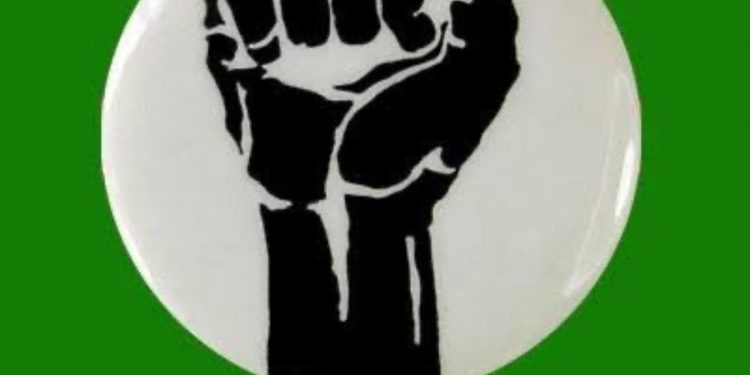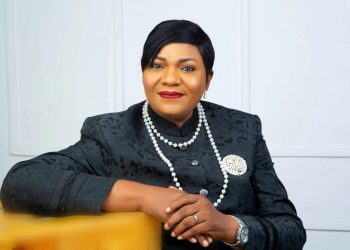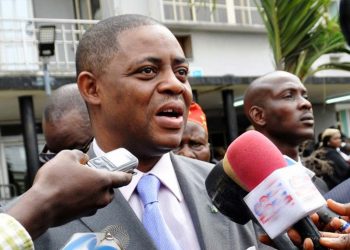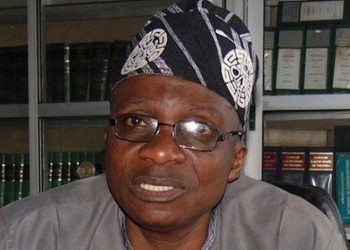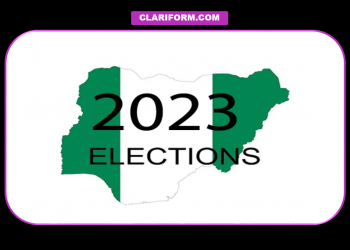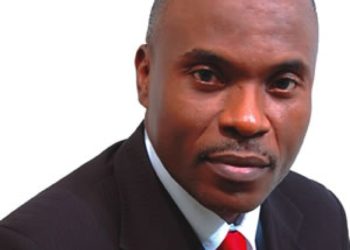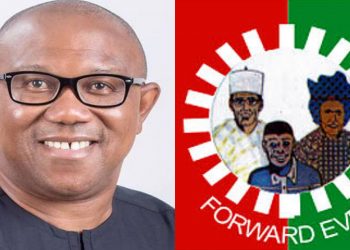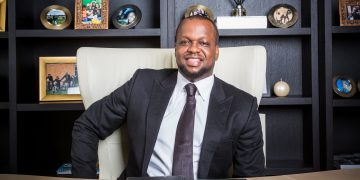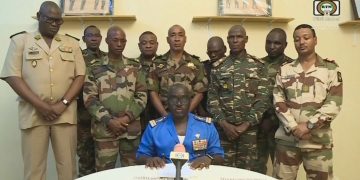One of the legacies of that avatar of human freedom, Gani Fawehinmi, is the liberalisation of the democratic space. Among Gani’s many legal battles were the ones fought in favour of registration of political parties without the unconstitutional impediments. Cases were won by organisations wishing to be registered as political parties. The organising principle of Gani’s valiant efforts was that the emergence of dominant parties in the nation’s political landscape should be a result of a democratic evolutionary process. Gani insisted on widening the frontiers of freedom including that of the space in the polity.
However, it is debatable if the present democratic space could be described as wide in real terms with the existence of the multiple political parties. What would be Gani’s view of the state of the parties if he were alive today? Such an assessment of the registered parties in terms of political relevance is vital in imagining the possibility of a third force in the polity.
In the last 12 years after Gani, a number of parties have been registered and deregistered based on the Independent Electoral Commission (INEC)’s guidelines. For instance, the ruling All Progressives Congress (APC) is one of the parties that have been registered since the death of Gani. The other dominant party, the Peoples Democratic Party (PDP), has maintained its form (if not content) since 1999. Gani’s own National Conscience Party (NCP) is one of the parties whose birth predates the Fourth Republic. In fact, the Peoples Redemption Party (PRP) was formed in the Second Republic. In this dispensation, governors have been elected on the platform of the All Progressives Grand Alliance (APGA) in Anambra and Imo States. A governor has also been elected on the platform of the Labour Party (LP) in Ondo state. Like the NCP, the LP has been part of the political landscape since the abortive Third Republic.
There are 18 political parties currently having their names on the register of INEC. Apart the political parties mentioned above, the parties which are expected to present candidates for the 2023 elections are Omoyele Sowore’s African Action Congress (AAC), African Democratic Congress, Accord, Action Democratic Party (ADP), Allied People’s Movement (APM), Rabiu Kwankwaso’s New Nigeria People’s Party (NNPP), National Rescue Movement, Social Democratic Party, Kingsley Moghalu’s Young Progressive Party, Zenith Labour Party, Boot Party, Action People’s Party and the Action Alliance.
Yet, when recently the two dominant parties – the APC and the Peoples Democratic Party (PDP) – announced their outrageously high nomination fees, the development did not result into the scrambling for the nomination forms of the smaller parties that cost little or nothing. Hardly has any politician of consequence protested the high fees of APC and PDP by picking up the nomination forms of a smaller party.
This is despite the counsel of some civil society organisations that members of APC and PDP who could not afford the high fees should try other parties. In fact, one of the most visible contenders for the presidential ticket of the PDP, Bashorun Dele Momodu, seemed to be referring to this trend recently when he gave reasons why he elected to the join the race on the platform of PDP. He said you could not win a “national election” on the platform of a “local party.” Momodu was the presidential candidate of NCP 11 years ago. In the election won by President Goodluck Jonathan, the performance of NCP was less than impressive. Perhaps, the barometer that Momodu has used in gauging the visibility of the smaller parties like NCP is the scantly mention of such parties in the mainstream media.
However the dialectical explanation for the poor performance of a small parties should go beyond Momodu’s correspondence of “national election” and “local party.” There are deeper questions to be raised about this trend in the polity.
The trend is that of the lack of a viable third force that could spring up amidst the plethora of political parties to contest for power with the APC and PDP.
To be charitable to a number of serious-minded patriots, deep thoughts have been given to the place of a third force in the polity. Only three months ago, it was announced that the formation of a third force to the APC and PDP was afoot. Names of genuinely committed Nigerians associated with the political efforts include those of Professor Attahiru Jega, Professor Pat Utomi, Dr. Olisa Agbakoba, Professor Kingsley Moghalu of the young Progressives Party (YPP).
It is, of course, indubitable that the emergence of more formidable political platforms would enrich the whole process of making a choice during elections. In addition, other serious forces on the political stage would provide multiple perspectives on the problem of underdevelopment and how to solve it. So it could be safely said that a formidable force has not yet emerged in the polity not because of lack of ideas about it.
The problem has been the absence of structures to make the political force a reality. Here, a clarification is important. The structures meant in this discussion are vastly different from what Nigerian politicians routinely call “structures on ground.” In most cases what politicians call structures are a mixture of vulnerable party members who materially depend on the politicians for handouts and thugs who enforce their will especially during elections.
On sympathetic note, it is extremely costly for a typical politician to maintain these “structures on ground” in a society without social security. The politician picks as many bills as possible on behalf of his supporters. And for a politician that retains the services of an army of thugs, the crude political culture could also be costly. This political culture is simply unsustainable on the long run.
This trend, of course, is not a substitute for a proper party organisation in which members belong to wards that hold regular meetings in which they are educated about party programmes. In the Second Republic, local party members paid dues as part of their membership responsibilities. Such political parties do not exist anymore. The politician now has to pay for members to even attend meetings in addition to being responsible for virtually all party expenses.
A viable political third force cannot be built on such a system of political clientelism in which votes are viewed as commodities. There is hardly any example of a respectable liberal democracy that is erected on that type of structure. It is a matter to ponder by the strategists of the dominant and smaller parties as well as sober students of Nigerian politics.
Apart from the APC and PDP, it is only the APGA that currently has a state governor elected on its platform. That is Governor Charles Soludo of Anambra state. In his remarkable inaugural address, Soludo endeavoured to do an ideological characterisation of APGA. He even located the ideological provenance of the part in the Nigerian and African political history. Now, it is not often that you find such an important effort at clarification of the ideological purpose of a party.
In the statement, Soludo established the progressive basis of the programmes of the party he has pledged to execute in the interest of Anambra people. In other words, the word progressive in the party is loaded with meaning. So, progressivism is not a vacuous political category. Somehow, APGA has managed to remain politically relevant by having governors elected on its platform in the southeast since the 2003 election. In practical terms, it is such an organisation that is imbued with the prospects of developing into a third force. The prospects would even be brighter if a coalition of such parties could be forged on a programmatic basis beyond mere electoral expediency. These are steps that could become the building blocks for a formidable force or even more forces in the polity.
The other parties with such prospects include the PRP, SDP and AAC. If these other parties could be in charge of governance at the sub-national levels like APGA, the possibility of a formidable force would be heightened. However, the tendency in Nigeria is for those desirous of a third force to hinge their membership of political parties on the presidential tickets of the party. That is why elements who are supposed to provide alternatives to APC and PDP are also migrating from one formation to the other like the members of the dominant parties.
Contrast the approach of the Nigerian smaller parties with that of Julius Malema’s Economic Freedom Fighters (EFF) in South Africa. The EFF founded in 2013 by a breakaway group of young politicians from the ruling African National Congress (ANC) has helped immensely in polarising debates on development issues in the country.
The elements of EFF are not just fighting to hold political offices; they are also fiercely fighting for a programme of economic redemption. They keep reminding those responsible for “state capture” in ANC of the original promise of the struggle for freedom. The ANC tends to derail as a party rooted in a progressive ideology. But the EFF is awake to pursue the people’s cause against the widening inequality that still defines South Africa’s social structure.
So no one needs to be told that with a lot of promise the EFF constitutes another force to the ANC, the Democratic Alliance (DA) and other existing political forces in South Africa.
On a more optimistic note, the potentials for such forces are immense in Nigeria. For example, the efforts to reshape the PRP and LP are in this direction. The minimum that is required of a party to make a difference in the polity today is the articulation of a social democratic programme. However, the LP, for instance, is anything but social democratic in its content.
Meanwhile, even in the metropolitan capitalist countries, parties in which workers have some influence are at least social democratic in character and content. But in Nigeria, parties that should be social democratic are joining the meaningless neoliberal chorus of the end of ideology. They end up with no articulation of a programme to transform the condition of the people. This is wrong-footed.
All told, a third force cannot be built and sustained by replicating what the APC and PDP have put on display for the electorate to make a choice. A different political culture has to be invented to distinguish the third force from the poltical Siamese twins called APC and PDP.
Written by Kayode Komolafe, a columnist with Thisday Newspapers and regular contributor on national issues. He can be reached on [email protected]


